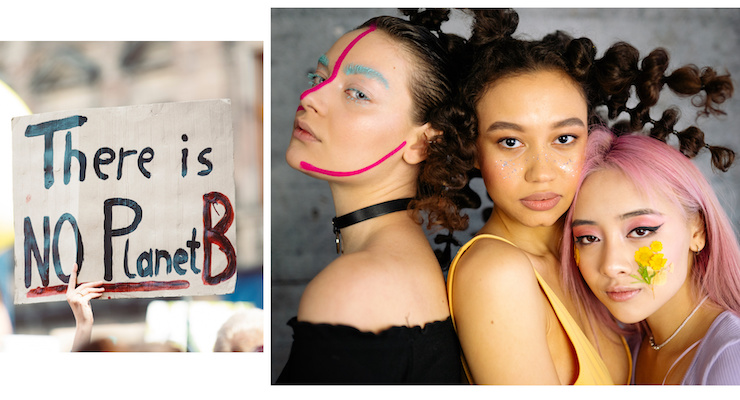Nearly 60% of Gen Z and Millennial shoppers say they have stopped buying brands that don't have—or don't effectively communicate—environmental credentials, ESW reports.
ESW’s most recent Global Voices Survey also found that two-thirds of Millennial consumers have spent more on a product because it was sustainable or had sustainable packaging.
Beauty brands may also want to be careful of presenting claims that may look like greenwashing, even if it isn't— because these savvy shoppers need specific information and details before they'll believe it. Transparency is crucial.
Patrick Bousquet-Chavanne, President and Chief Executive Officer, ESW Americas, comments:
“Younger consumers are acutely conscious of a brand’s efforts towards sustainability. There’s a well-known, ongoing debate over whether these consumers’ values actually align with their shopping behaviors, but our most recent data shows that the majority will, in fact, take sustainability practices into account when making purchase decisions and may even refuse to buy from a brand that doesn’t have (or make public) their environmental credentials."
Bousquet-Chavanne continues, This shift towards eco-conscious consumerism should serve as a wake-up call for brands to be more transparent with their manufacturing, packaging, and shipping practices.”
The findings align with what experts told us for the story, Beauty Packaging ‘Sparks Joy,’ Rallies for a Cause—& More.
Two weeks ago, ESW reported that 67% of Gen Z and Millennial online beauty shoppers prefer to wait for lower prices on products, even if it means risking the item going out of stock.
ESW's 'Sustainable Global Growth and Shopper Expectations' Report
ESW recently surveyed more than 16,000 shoppers from 16 countries about their attitudes toward sustainable shopping, stating, "2023 is expected to be a pivotal year for sustainability as brands and retailers make it a strategic imperative. Consumers are increasingly adopting more sustainable behaviours including looking at product impact and choosing brands that align with their values. Consumers now expect businesses to do the same."
Here are a few highlights from the survey:
- Awareness of greenwashing has increased, with 62% of consumers more aware of this practice today than a year ago.
- Forty-six percent of health and beauty consumers consider environmentally friendly packaging options when making purchases.
- Seventy-five percent of luxury shoppers expect transparency and information on the environmental credentials of the brand/retailer.
- Younger markets, which offer prime e-commerce expansion opportunities for brands, demonstrate a higher degree of consumer sustainability consideration. Countries with consumers that have the greatest concern for sustainability include India (98%); China; (94%); UAE (94%); Mexico (93%); and South Korea (90%). This is compared to mature markets such as Canada (65%); Japan (66%); and the US, UK, and Australia (70%).
- Sixty-seven percent of shoppers consider ethical production when shopping online – 63% have sought out products in sustainable packaging, 42% include options for less packaging overall when making their purchase consideration, and 35% include options for green delivery, such as electric vehicles and carbon offsetting.
More About the Study
ESW’s latest Global Voices consumer survey was conducted in November 2022 in 16 countries—Canada, the United States, Mexico, the United Kingdom, Switzerland, Spain, France, Italy, Germany, South Africa, the United Arab Emirates, India, China, South Korea, Japan, and Australia. The findings are based on answers from 16,557 people who responded.In this report, Gen Z is defined as those between 18 and 24; Millennials as those ages 25-40; Gen X as those ages 41-56; and Baby Boomers defined as those ages 57-75.















